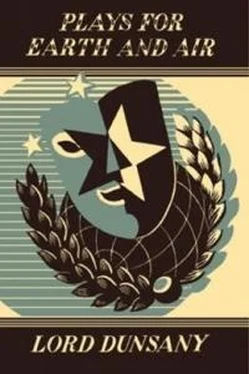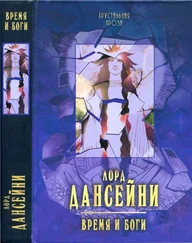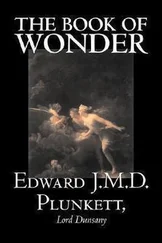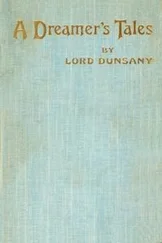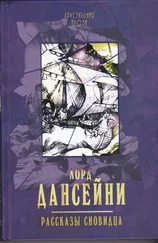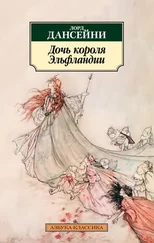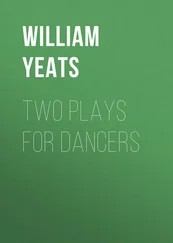MRS. LUMLEY: But what can you do, sir?
BILL: Well, Mrs. Lumley, look at the height it is. And straight under us. If those men with the red bear come on any further they’ll be right under the window.
MRS. LUMLEY: And what then, sir?
BILL: Why, Mrs. Lumley, anything thrown from here would fall with terrific force. They’ve no weapons down there to equal falling fire–irons, and coal too, and, and, anything you could spare, Mrs. Lumley.
MRS. LUMLEY: It’s a nice pair o’ tongs, sir.
BILL: I know, Mrs. Lumley, I know. But it’s your city.
LILY: Quick, Bill.
BILL: Oh, look! They’re coming on running.
MRS. LUMLEY: Very well, sir. Very well. Just as you like.
BILL: Oh, thank you, Mrs. Lumley.
LILY: Quick, Bill.
BILL: Well, first we must break out a couple of panes and give them the poker, and whatever else will go through. Stand clear, Lily.
LILY: All right. The dragon flags are still flying!
BILL: We’ll beat them back yet.
Smash. A big breath as he swings back with the poker.
BILL: Look out, Mrs. Lumley. Well, here’s for Golden Dragon City…. Hullo.
LILY: What a queer scent.
BILL: Hullo. My tea–things.
LILY: Why, so they are.
BILL: It’s all gone, Mrs. Lumley.
MRS. LUMLEY: Why, so it is.
LILY: All gone, Golden Dragon City.
MRS. LUMLEY: Well, I should never have known what to have done with it.
Dramatis personæ
* UNCLE ALBERT
* AUNT EMILY
* JAMES SMITH
* UNCLE ANDREW
* AN AUCTIONEER
* MR. BOXTON
* Etc., Etc.
Several years ago.
UNCLE ALBERT: You will credit that I have not lightly invited all the members of the family to meet here to–day. I have not frivolously called you together.
VOICES: Quite so. Quite so.
UNCLE ALBERT: And you may have guessed that the cause of my doing so was James.
AUNT EMILY: Well, Albert, it crossed my mind that that might have been perhaps your reason.
UNCLE ALBERT: Precisely. It was.
AUNT EMILY: But nothing bad I hope.
UNCLE ALBERT: You shall hear. You shall judge for yourself. Indeed you shall all hear. As James’ guardian I could, with the assistance of Eliza, have dealt with the matter myself, had it been any ordinary matter. But shall I call it an ordinary matter, James?
JAMES: Oh, er no. No, of course not.
UNCLE ALBERT: I thought, then, that to bring such a matter before what I may call a council of the whole family, the elder members of it that is to say, was a course that such a situation justifies.
AUNT EMILY: But what has he done, Albert?
UNCLE ALBERT: Permit me to tell you, and you shall hear. I am, I think I may say, a man without prejudices. Consequently, when I discovered that James was writing poetry, I did not forbid it, in spite of the looseness of character that is notoriously associated with those that do write such things. I did not forbid it. I see now that I should have done so.
AUNT EMILY: Oh, but there’s no great harm in his writing a little poetry.
UNCLE ALBERT: Isn’t there, Emily?
AUNT EMILY: Well, not just a little in his leisure time.
UNCLE ALBERT: Wait.
A few grave coughs show the presence of other elders of the family.
AUNT EMILY: Well, Albert.
UNCLE ALBERT: There is more than this.
A MALE VOICE: More!
UNCLE ALBERT: Indeed writing poetry was only the beginning of it. He has wasted money on an unprecedented scale.
AUNT EMILY: Good gracious!
UNCLE ALBERT: I do not say that the sum itself is vast. But had he wasted a hundred pounds in any manner in which money has ever been wasted before, I should have felt less alarmed than I do when I observe how he wastes five pounds.
AUNT EMILY: Boys will be boys, you know, Albert.
UNCLE ALBERT: Passing over the fact that he is past twenty, I will give weight to your argument in his favour, Emily, if you can tell me any boy you ever heard of, or any young man, who has wasted his money as he wastes it.
AUNT EMILY: But how, Albert?
MALE VOICE: Yes, how?
UNCLE ALBERT ( after the slightest pause for effect ): He uses it as note–paper.
AUNT EMILY: Uses it as … ?
UNCLE ALBERT: As note–paper.
MALE VOICE: Note–paper?
UNCLE ALBERT: He has written all over this five pound note; and perhaps some of you who are better acquainted with the custom of banks than I am will tell me if it is possible that any value remains in it.
VOICE 1: H’m.
VOICE 2: Ha.
VOICE 3: What?
UNCLE ANDREW: Obliterated.
VOICE 3: What?
UNCLE ANDREW: Totally obliterated.
UNCLE ALBERT: Totally obliterated?
UNCLE ANDREW: Certainly.
UNCLE ALBERT: So I supposed. So indeed I supposed.
JAMES: Er, but I believe if the number remains, even if nothing else, I’ve heard it said that the bank may pay. I can see a bit of the number.
UNCLE ALBERT: You heard what Uncle Andrew said: totally obliterated.
JAMES: Oh.
AUNT EMILY: Oh, James, why did you do it?
JAMES: I was sitting at my writing table, Aunt Emily, and I’d run out of paper; when a poem suddenly came to me. I couldn’t write on the blotting paper; I did try, but the pen got all woolly. And I’d got the five pound note in my pocket, so I wrote on the back. I didn’t think the back would matter.
AUNT EMILY: Oh that’s not so bad, Albert. Let’s see.
UNCLE ALBERT: You wrote on the back, you say.
JAMES: Well I began on the back, and I wrote very small, and I thought that there would have been room enough.
UNCLE ALBERT: And do you say that you did not write on the front part of the five pound note?
JAMES: I must have. You see the poem wasn’t finished. So I turned over the page.
UNCLE ALBERT: He turned over the page! You have heard him. The currency of this realm is to him no more than a note–book. This is the extreme length to which a foolish taste for poetry can go. We must, after consideration among ourselves, devise means to restrain him. Meanwhile …
JAMES: I’m very sorry.
UNCLE ALBERT: Meanwhile …
AUNT EMILY: After all, it isn’t a habit Albert.
UNCLE ALBERT: A habit, Emily. It is not. And that is precisely what I shall prevent it from ever becoming. But meanwhile I have drawn up this solemn undertaking, which he will sign, and I trust that it may be binding upon his conscience. I will read it to you all; and listen attentively, James, in order that you may appreciate what you are signing. “I (and here you will fill in your full name in your own handwriting) do solemnly undertake and swear never henceforth to write again any word or words soever upon any bank–note, back or front, or upon any cheque or postal order, other than such words as may be properly required by the bank or the Post Office; or upon any other paper or parchment that is legally changeable for any sum of money.” I think that will cover the situation if he abides by it, though I cannot hope that he will ever have a proper estimate of the value of money after the disrespect he has shown for it.
JAMES: I’m awfully sorry Uncle Albert. But I didn’t mean to show any disrespect to it.
UNCLE ALBERT: It was a new five–pound–note . And you wrote poetry on it.
AUNT EMILY: I have seen a man jotting down accounts on the back of a five–pound note. I saw a man doing it once.
UNCLE ALBERT: Accounts, Emily. There is nothing derogatory in accounts.
AUNT EMILY: Still, it was untidy of him.
UNCLE ALBERT: The untidiness of this person does not excuse James’s gross disrespect, to, to, er, The Bank of England.
JAMES: I am very sorry. I am really very sorry indeed. I don’t know how I came to do it. I never do know how poems come. It was the poem coming so suddenly; or I’d never have done it.
Читать дальше
